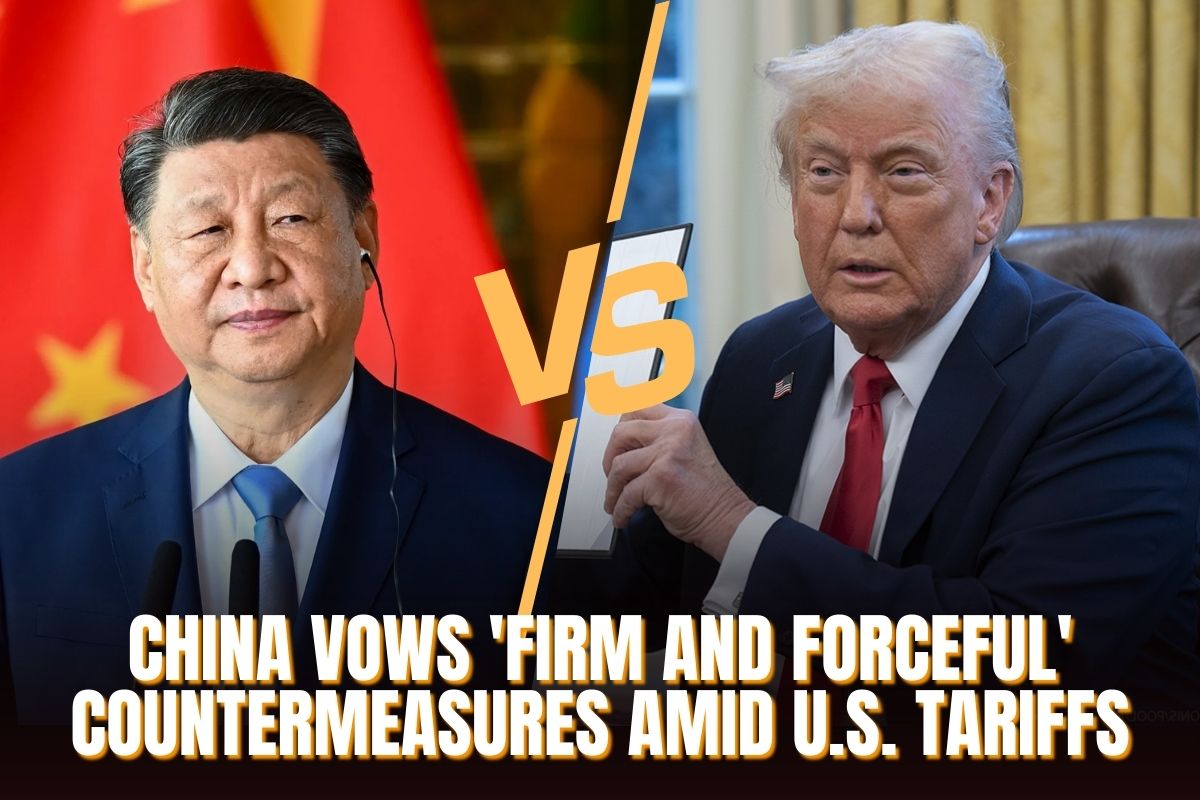On April 9, 2025, the United States implemented a 104% tariff on Chinese imports, intensifying the ongoing trade conflict between the world’s two largest economies. In response, China’s Ministry of Commerce expressed strong dissatisfaction and opposition, pledging to take “resolute and forceful” measures to safeguard national interests.
White House Press Secretary says 104% additional tariffs went into effect at noon eastern time because China has not removed it’s retaliation. The 104% additional tariff will be collected starting tomorrow April 9th. #trade #Tariffs #POTUS #china
— Edward Lawrence (@EdwardLawrence) April 8, 2025
Lin Jian, a spokesman for China’s Foreign Ministry, said that the U.S.’s continued use of tariffs as a way to put pressure on other countries was bullying. Lin stressed that if the U.S. wants to solve trade problems, it should start a conversation based on equality, mutual respect, and the benefit of both sides.
Chinese Premier Li Qiang had a phone conversation with European Commission President Ursula von der Leyen @vonderleyen.
The US has recently announced indiscriminate tariffs on all its trading partners, including China and the EU, under various pretexts, which is a typical case…
— Lin Jian 林剑 (@SpoxCHN_LinJian) April 8, 2025
Also read: Dire Wolves Return: Colossal Biosciences Achieves World’s First De-Extinction.
China had put a 34% tariff on American goods before the U.S. government put these high tariffs in place. Treasury Secretary Scott Bessent said that China’s response was a mistake in strategy and pointed out the big trade gap between the two countries.
The rising tariffs have had an instant effect on the world’s financial markets. The S&P 500 is getting close to a bear market, and assets that are usually steady are becoming less stable. Economists warn that customers in the U.S. may have to pay for it in the end by paying more for goods.
China’s State Council Information Office put out a white paper in which they said that the U.S.’s actions were typical of unilateralism, protectionism, and economic threats. The paper said that raising tariffs would not fix problems with the U.S. trade surplus. Instead, it would make financial markets very unstable, make inflation worse, and hurt American businesses.
Even though things are getting worse, China said it was ready to talk. They told the U.S. to get rid of its trade barriers and pushed for everyone to work together to get things. On the other hand, China said it would “fight till the end” if the U.S. kept up the price war and didn’t stop the damage.
Also read: Jay North, Iconic ‘Dennis the Menace’ Actor, Dies at 73 After Battling Cancer.
Other groups around the world have also said bad things about these tariffs. The World Bank (IMF) said that these kinds of moves could make it harder to spend and trade, damage supply chains, and even lead to a slowdown around the world.
As both countries get ready for how these rising tariffs will affect their economies, the rest of the world keeps a close eye on things, hoping for a solution that will calm markets and restore trust in trade between countries.
